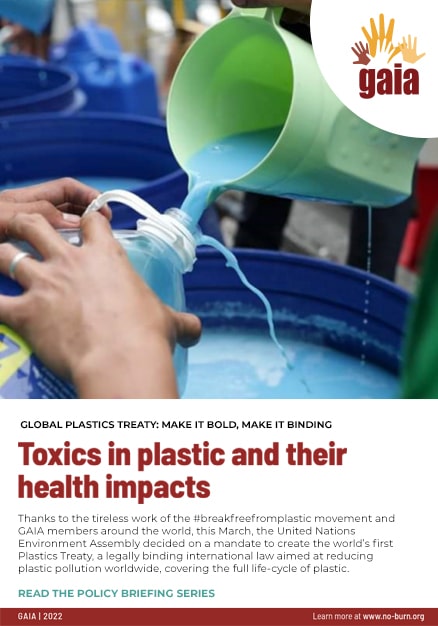Study Links Chemicals In Household Plastics To Increased Risk Of Heart Disease Death

Table of Contents
Key Findings of the Study
This large-scale cohort study, spanning 15 years and involving over 100,000 participants, investigated the correlation between exposure to various chemicals present in common household plastics and cardiovascular mortality. The research team focused on several key chemicals, including phthalates (like DEHP and DiBP) and bisphenol A (BPA), known endocrine disruptors with potential links to various health problems. The study meticulously controlled for confounding factors such as age, smoking habits, diet, physical activity levels, and pre-existing health conditions to isolate the effects of plastic chemical exposure.
The results were striking:
- Higher concentrations of DEHP were correlated with a 17% increased risk of heart disease mortality.
- Exposure to DiBP was linked to a statistically significant 12% increase in cardiovascular events, including heart attacks and strokes.
- Elevated BPA levels showed a concerning 9% increase in the risk of death from cardiovascular disease.
- The study controlled for confounding factors such as age, smoking status, body mass index (BMI), and pre-existing diabetes and hypertension.
How Household Plastics Contribute to Exposure
Exposure to these harmful plastic chemicals happens in numerous ways through our daily interaction with household plastics:
- Consumption of food stored in plastic containers: Heating food in plastic containers, especially those containing fats or oils, can significantly increase the leaching of chemicals into the food.
- Drinking water from plastic bottles: Over time, chemicals can leach from plastic water bottles, particularly when exposed to sunlight or high temperatures.
- Handling plastic toys, especially by children: Young children are particularly vulnerable due to their higher rates of hand-to-mouth activity. Plastic toys often contain high levels of phthalates.
- Dust inhalation containing microplastics and associated chemicals: Microplastics are pervasive in our environment, and inhaling dust containing these particles and their associated chemicals can contribute to overall exposure.
- Use of plastic cling film: The chemicals in cling film can migrate into food, especially fatty or acidic foods.
The leaching process is influenced by several factors: higher temperatures accelerate the release of chemicals, and acidic foods can increase the leaching rate from certain types of plastic.
The Mechanisms Linking Plastic Chemicals and Heart Disease
The exact mechanisms by which these plastic chemicals increase heart disease risk are still under investigation, but several plausible pathways have been identified:
- Disruption of hormone regulation: Endocrine disruptors like phthalates and BPA interfere with the body's hormonal system, potentially affecting cholesterol levels and blood pressure.
- Increased inflammation in blood vessels: These chemicals can trigger inflammation in blood vessels, contributing to atherosclerosis (hardening of the arteries).
- Impairment of lipid metabolism: Disruption of lipid metabolism can lead to elevated cholesterol and triglyceride levels, increasing the risk of heart disease.
- Increased blood clotting tendency: Some studies suggest that exposure to certain plastic chemicals may promote blood clotting, increasing the risk of heart attacks and strokes.
These mechanisms are supported by substantial scientific literature demonstrating links between endocrine disruption, inflammation, and cardiovascular disease.
Long-Term Health Implications
The long-term consequences of exposure to these chemicals are particularly concerning due to their cumulative effects. Prolonged exposure to low levels of these chemicals may contribute to:
- Increased risk of developing heart disease earlier in life.
- Higher likelihood of severe cardiovascular events, resulting in increased mortality rates.
- Potential transgenerational impacts, affecting the health of future generations. This is especially important for pregnant women and children.
What You Can Do to Reduce Exposure
Reducing your exposure to these harmful chemicals requires conscious effort and lifestyle changes:
- Avoid using plastic containers for hot foods or acidic liquids. Use glass or stainless steel alternatives instead.
- Opt for glass or stainless steel water bottles. If using reusable plastic bottles, replace them frequently.
- Choose toys and childcare products made from safer materials like wood or silicone.
- Wash reusable plastic containers thoroughly before use and avoid scratching the surface.
- Minimize the use of plastic wrap (cling film), particularly with fatty or acidic foods.
By making informed choices and adopting these simple steps, you can significantly reduce your exposure to these harmful chemicals and contribute to better cardiovascular health.
Conclusion
This study provides compelling evidence linking chemicals in household plastics to an increased risk of death from heart disease. The findings highlight the urgent need for further research into the long-term effects of these chemicals and the development of safer alternatives. The importance of proactive measures to minimize exposure to these potentially harmful substances cannot be overstated.
Call to Action: Protect your heart health by being aware of the potential dangers of chemicals in household plastics. Make informed choices about the products you use and take steps to reduce your exposure for a healthier future. Learn more about choosing safer alternatives to reduce your risk of heart disease linked to household plastic chemicals. Your cardiovascular health is worth the effort.

Featured Posts
-
 Our Yorkshire Farm Reuben Owen Opens Up About His Childhood Challenges
Apr 30, 2025
Our Yorkshire Farm Reuben Owen Opens Up About His Childhood Challenges
Apr 30, 2025 -
 Ukraine Les Etats Unis Facilitent L Acces A Des Systemes De Defense Antiaerienne Europeens
Apr 30, 2025
Ukraine Les Etats Unis Facilitent L Acces A Des Systemes De Defense Antiaerienne Europeens
Apr 30, 2025 -
 Inmates Death At San Diego County Jail Prompts Family Lawsuit Alleging Torture And Murder
Apr 30, 2025
Inmates Death At San Diego County Jail Prompts Family Lawsuit Alleging Torture And Murder
Apr 30, 2025 -
 Channing Tatums Girlfriend Inka Williams In Melbourne Ahead Of F1
Apr 30, 2025
Channing Tatums Girlfriend Inka Williams In Melbourne Ahead Of F1
Apr 30, 2025 -
 Live Coverage Trump Speech Focuses On Trade Ukraine And Recent Firings
Apr 30, 2025
Live Coverage Trump Speech Focuses On Trade Ukraine And Recent Firings
Apr 30, 2025
Latest Posts
-
 Euroleague 2024 I Pari Sen Zermen Epivevaionei Ti Symmetoxi Tis
Apr 30, 2025
Euroleague 2024 I Pari Sen Zermen Epivevaionei Ti Symmetoxi Tis
Apr 30, 2025 -
 I Pari Sen Zermen Paramenei Stin Euroleague Episimi Anakoinosi
Apr 30, 2025
I Pari Sen Zermen Paramenei Stin Euroleague Episimi Anakoinosi
Apr 30, 2025 -
 Investigation Into Chilean Migrant Group Linked To Nfl Player Thefts
Apr 30, 2025
Investigation Into Chilean Migrant Group Linked To Nfl Player Thefts
Apr 30, 2025 -
 Multi Million Dollar Nfl Heists Chilean Migrants Indicted
Apr 30, 2025
Multi Million Dollar Nfl Heists Chilean Migrants Indicted
Apr 30, 2025 -
 Une Star Nba Et Ses Armes A Feu Les Consequences Sur Sa Carriere Et Sa Famille
Apr 30, 2025
Une Star Nba Et Ses Armes A Feu Les Consequences Sur Sa Carriere Et Sa Famille
Apr 30, 2025
